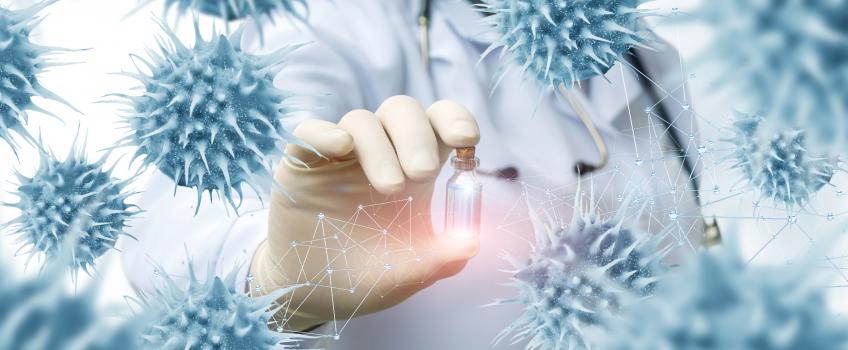
O. Magazzino 1* and G. Ingravallo 2
1Hematology Unit; Department of Emergency and Organs Transplantation - University of Bari (Italy).
2Pathological Anatomy- University of Bari ( Italy).
*Corresponding Author: O. Magazzino, Hematology Unit; Department of Emergency and Organs Transplantation - University of Bari (Italy)..
Received: October 03, 2022
Accepted: October 10, 2022
Published: October 15, 2022
Citation: O. Magazzino and G. Ingravallo. (2022) “Cross-Talk Between Lymphocyte Infiltrate CD20+ on Mammary Epithelium in Primary Sjogren’s Syndrome and Breast Cancer”, J Oncology and Cancer Screening, 4(3); DOI: http;//doi.org/010.2022/1.1060.
Copyright: © 2022 O. Magazzino. This is an open access article distributed under the Creative Commons Attribution License, which permits unrestricted use, distribution, and reproduction in any medium, provided the original work is properly cited.
Primary Sjogren’s Syndrome is a autoimmune systemic disorder of the women, characterized by disfunction of exocrine glands.
Introduction:
Primary Sjogren’s Syndrome is a autoimmune systemic disorder of the women, characterized by disfunction of exocrine glands.
Xerostomia, xeroftalmia, xerovagina, swelling of salivary glands are the most important symptoms. Histological feature is a typical lymphocyte infiltrate anti-CD20+ of the epithelium of exocrine glands.
In some cases, Sjogren’s Syndrome reveals organ involvement : pulmonary interstitial disease, myopathies, neurological symptoms , nephropathies.
The malignant evolution of pSS is lymphoma. [1,4,5, 11]
There are no evidence that the autoinflammatory pathogenesis of Sjogren’s Syndrome increases the risk of solid tumors in exocrine glands and breast cancer.
Solid tumors usually present necrosis (macrophages, disorder of the epithelium, tissue hypoxia, hypervascularization). [2-3]
In pSS there are some cases with evidence of lymphocite infiltrate anti-CD20+ also in tumors of the breast and exocrine glands. Probably, there is a cross-talk between inflammatory infiltrate antiCD20+ on neoplastic epithelium.
Objective:
The objective of this study is describing a case of breast cancer with lymphocite infiltrate CD20+ without necrosis in a patient affected by pSS.
Results:
Case Report:
Woman 52 years old, affected by pSS ANA positivity 1/80 pattern nuclear speckled, anti-SSA, anti-SSB positivity, FR e anticorpi anti-CCP negative, therapy with hydroxycloroquine 200 mg/die.
Diagnosis: infiltrating ductal carcinoma in left breast pT2 N1a Mx , diameter 21 mm, Madden radical mastectomy, axillary linfoadenectomy.
The histological examination shows lymphocyte infiltrate in the lobular epithelium, periductal and periacinar fibrosis without neoplastic necrosis.
Immunohistochemistry confirms intralobular lymphocite infiltrate CD20+.
Conclusions:
Mammary glandular epithelium in pSS develops a typical inflammatory lymphocite infiltrate CD20+ in lobules . In this case, neoplastic epithelium of breast cancer in a patient affected by pSS there is not necrosis but inflammatory lymphocite infiltrate CD20+ . That is different from solid tumors like bowel cancer or skin cancer.
Probably, there is a cross-talk between inflammatory cells on neoplastic cells : a defence mechanism against tumor necrosis? a regulatory system based on inflammatory epithelium glands? Could Hydroxycloroquine have a immunomodulatory role in the tumorigenesis.[6-8]
The connection among autoimmunity, inflammation, tumorigenesis is an interesting argument to develop with other studies.
Understending of tumorigenesis, lymphocytic hemperipolesis, pathogenesis of autoimmune diseases could be important to discover new target therapies and prognostic biomarkers in the future.[9,10]
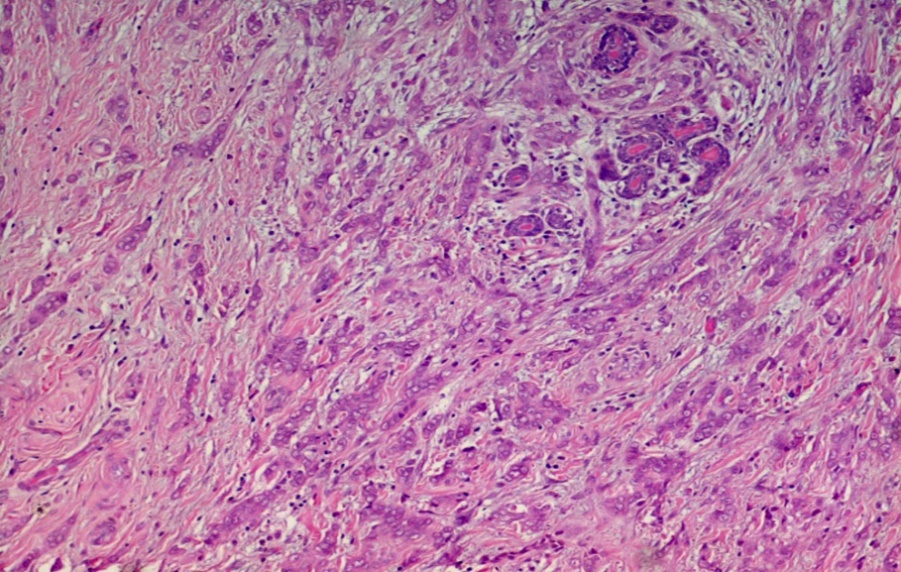
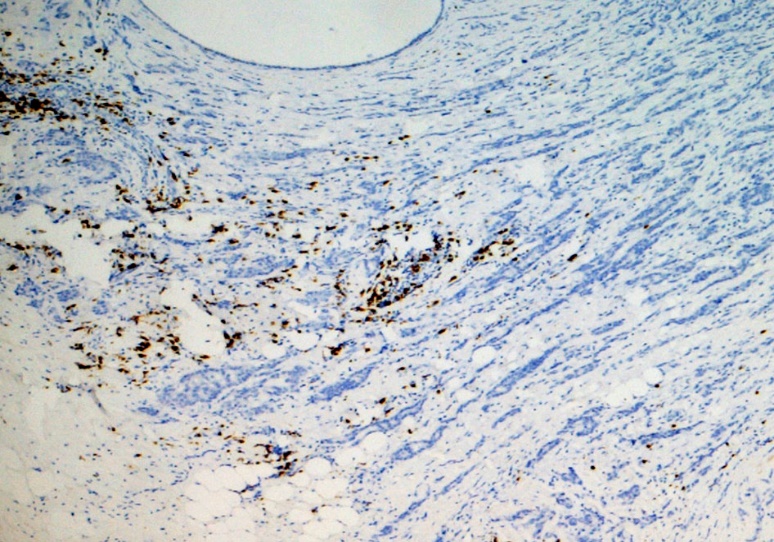
Figure 1: Infiltrating ductal carcinoma in left breast, IIC : lymphocyte infiltrate CD2
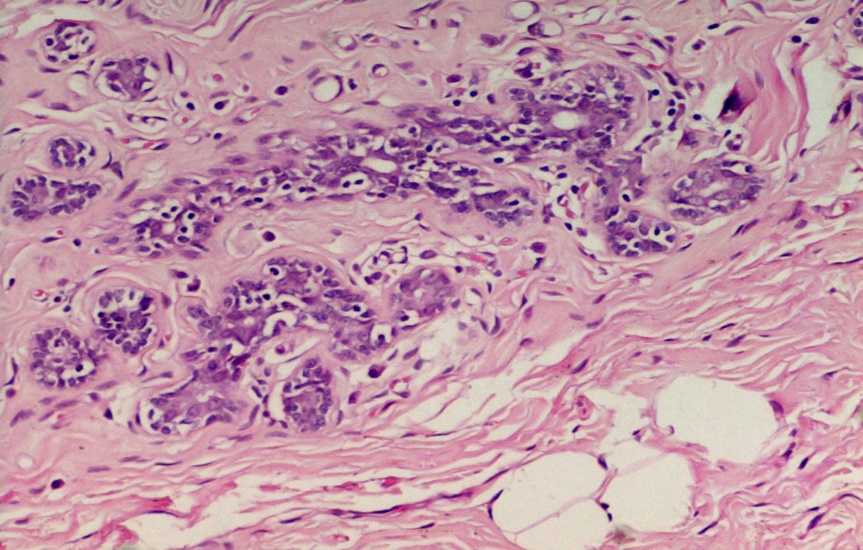
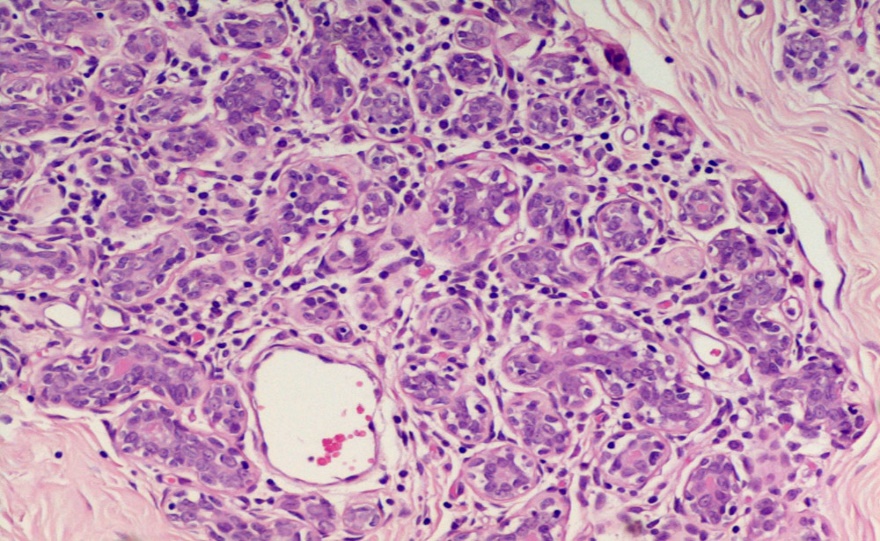
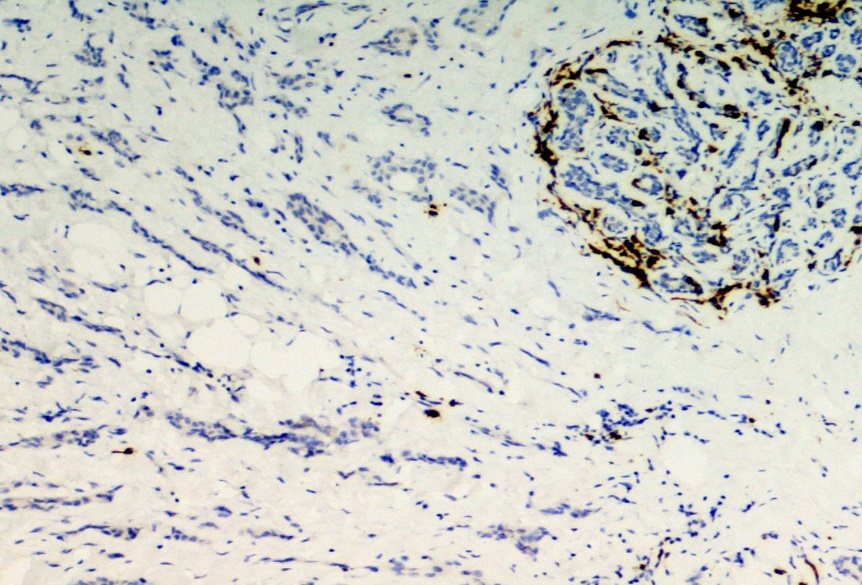
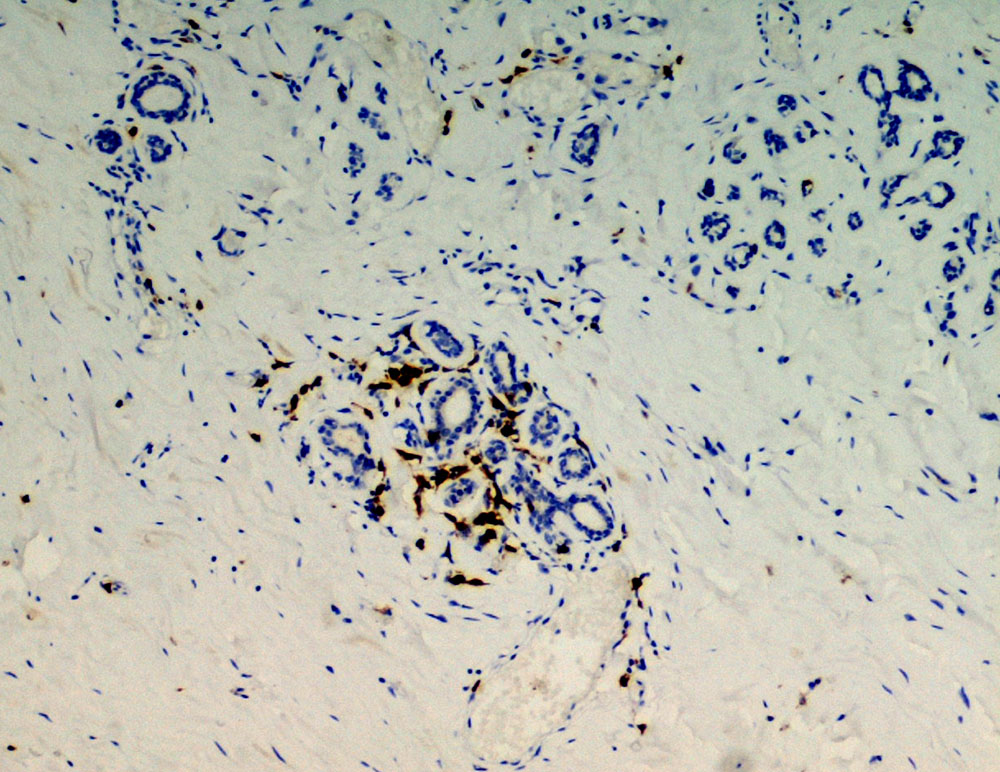
Figure 2: Lymphocytes infiltrate in lobules, IIC CD 20